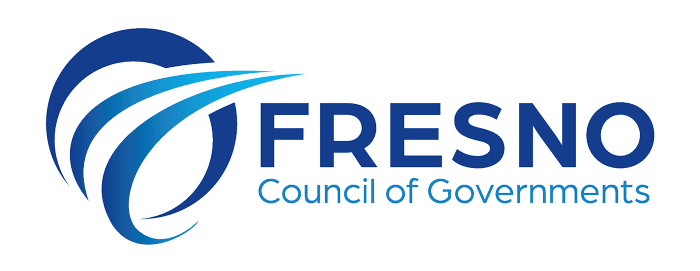Summary: In July 2023, Fresno COG staff began holding a series of meetings with school district and local jurisdictional staff across the county to discuss safety concerns of school children getting to their school sites safely.
In these discussions COG staff received specific project suggestions that would address particular safety concerns. This dialog helped staff produce a new list of projects that could be incorporated into future grant applications and potentially into a future Measure C renewal expenditure plan, to be approved by voters in 2026. This project list was also incorporated into Fresno COG’s Regional Active Transportation Plan Update as an appendix, which was adopted by the Policy Board at its May 2024 meeting.
COG staff first briefed the Policy Board of these Safe Routes to Schools activities at the November 2023 Board Meeting. In January 2024, the Policy Board formed a Safe Routes to Schools (SRTS) Subcommittee, comprising severa Policy Board members.
On Sept. 26, the Fresno COG SRTS Subcommittee convened to discuss goals for SRTS funding and safety improvements. Following the Subcommittee’s direction, staff has explored the feasibility of amending the Measure C Expenditure Plan to potentially reallocate funding for SRTS projects.
Staff met with the Fresno County Transportation Authority (FCTA) to discuss potential funding opportunities in the existing expenditure plan. FCTA and Fresno COG identified four potential programs in the expenditure plan that are forecast to not be fully expended by the 2027 sunset of the current Measure. These programs are 1) Senior Scrip, 2) Ag/Farmworker Vanpools, 3) Car/Vanpools, and 4) New Technology Reserve carryover funds from the recently completed FY 24-25 cycle.
| MEASURE “C” SOURCE |
SENIOR SCRIP |
FARMWORKER VAN POOLS |
CAR/VAN POOLS |
NEW TECH
FY 24-25 CYCLE CARRYOVER |
TOTAL |
| PROPOSED REALLOCATION |
2,500,000 |
2,500,000 |
1,000,000 |
2,500,000 |
8,500,000 |
Based on historical trends of expenditures and demand for these programs, FCTA and Fresno COG anticipate a sufficient remaining balance to support both existing and future demand for each until the 2027 sunset and the one-time $8.5 million infusion of funding for a SRTS program.
At this stage, this proposal to potentially reallocate $8.5 million in funding across the four programs outlined above into SRTS is simply a concept. Should the Board advise Fresno COG to proceed with an amendment to the Measure C Expenditure plan, this would entail further discussion with FCTA and the SRTS Subcommittee regarding logistics of the program as well as amendment approval by the FCTA Board. Additionally, Fresno COG has suggested a similar item be presented to the FCTA Board in December as a conceptual item. If approved, this item would return to the Board in the first quarter of 2025 and include program guidelines and a formal amendment.
During the Nov. 8 Fresno COG Transportation Technical Committee (TTC) and Policy Advisory Committee (PAC) meetings, the two committees unanimously voted to table the item and refer the issues back to the SRTS Subcommittee to explore additional options. TTC and PAC expressed several concerns, including that shifting funding at this time could impact the Measure C renewal effort just getting underway, as well as a desire by some agencies to keep the New Tech Program funding whole. As such, Fresno COG staff is presenting several options for the Policy Board to consider for this item, as outlined below.
- The original proposal: Shift up to a total of $8.5 million from the Senior Scrip, car/vanpools, AG vanpools and New Technology programs to a new Safe Routes to Schools program. This would require an amendment to the Measure C expenditure plan and would have to be ratified by the Fresno County Transportation Authority Board. It would also require new guidelines governing the program to be developed and approved. Yet to be determined is whether the new program would be formula or competitive; however, in either case, the guidelines would have to be fully vetted and approved as part of the amendment process.
- Augment existing Measure C programs: A second option is to add up to $8.5 million to the existing Measure C Local Transportation Program, which already allows for SRTS project eligibility. Under this option, additional funding could be distributed on a formula basis that the jurisdictions would then choose to prioritize for SRTS projects. This approach also requires the full amendment process but does not silo the funding in the same fashion as option No. 1. Jurisdictions would have the ability to spend the funding on maintenance or other, non-school related projects.
- Include a Measure C/SRTS commitment but require matching funds: A third approach involves committing a lesser amount of Measure C funding to a siloed SRTS program and require matching funds from school districts to fund projects. Like option No. 1, this would still require a full amendment to Measure C, including new program guidelines; however, the funding commitment could be reduced.
- Establish a staff-led SRTS subcommittee to prioritize SRTS projects received from school districts. Under this scenario, a subcommittee of Fresno COG and jurisdiction staff could integrate and prioritize the list of SRTS projects that Fresno COG has already received from all but six of the school districts in Fresno County. The project list would serve as a guide for future grant opportunities at the State and Federal levels, including such programs as Congestion Mitigation Air Quality, Active Transportation and Safe Streets 4 All. This option would not require any adjustment to Measure C funds.
Action: To be determined. TTC and PAC recommend the Policy Board table this item and refer it back to the SRTS Subcommittee for further deliberation.



